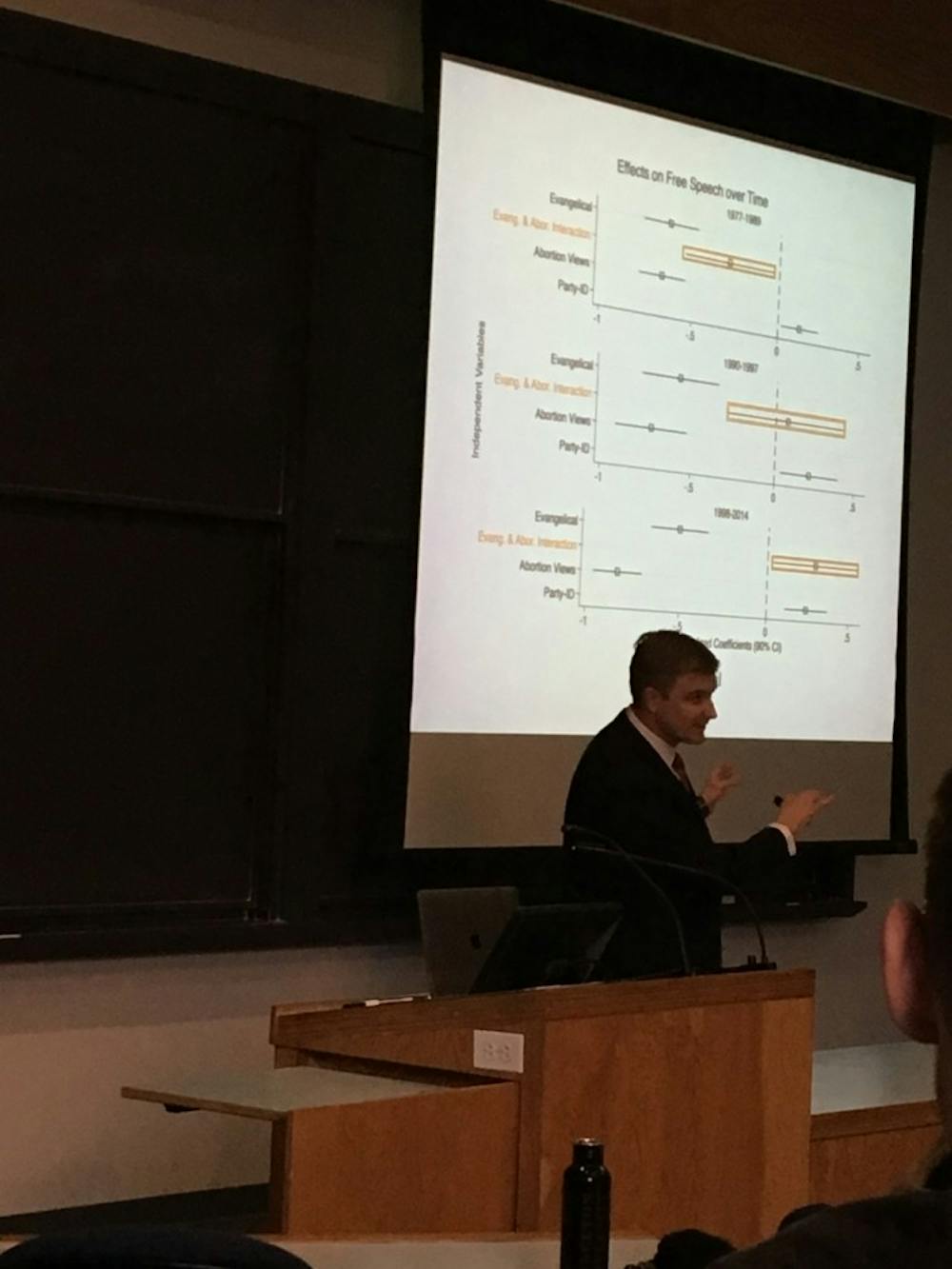“We can’t fix poverty in America without fixing housing,” said sociology professor Matthew Desmond at a Feb. 28 lecture on eviction in America.
Desmond, whose book “Evicted: Poverty and Profit in the American City” won the Pulitzer Prize for General Nonfiction in 2017, has spent the last several years researching how eviction plays out “on the ground” in American cities.
In 2008 and 2009, Desmond spent about fifteen months living in low-income areas of Milwaukee, Wis., first in a trailer park and later in a rooming house. He shadowed several families who were being evicted and closely interviewed them about the process.
“I went everywhere with them. I went to shelters, to eviction court, to homes,” said Desmond. “I watched their kids, I slept on their floor, I ate off their table, I went to church with them.”
He followed landlords as well, shadowing them as they handed out eviction notices and traveled to different properties.
“The complicated relationship between the landlords and tenants is central if we want to understand eviction in America,” Desmond said.
According to Desmond, while sociologists have “spent a lot of time looking at public housing,” research on the process of eviction was surprisingly limited when he started his project.
To compensate for the lack of data, Desmond and his team analyzed tens of thousands of eviction records, talked to 250 people immediately following their eviction hearings, and analyzed thousands of 911 calls and newspaper ordinances.

The book follows the stories of eight families in Milwaukee struggling to find adequate housing conditions. At the lecture, Desmond focused on the story of Arleen Bell, who makes an appearance in the book’s first chapter.
In 2008, Arleen’s 14-year-old son Jori and his cousin were throwing snowballs at cars. One man whose car had been struck chased Jori back to his home and kicked the door down.
“When Arleen’s landlord found out about that, she decided to evict Arleen and her boy for damaging property,” Desmond said.
Arleen and her two sons found another home. The water frequently did not work, but Desmond said Arleen called it her “favorite place” because it was quiet and had low rent.

“So if we want to know why some kids live with lead paint and exposed wires, no heat and no water, one reason is their families accept those kinds of conditions in the period after eviction,” Desmond said.
Arleen’s home was soon declared unfit for habitation. She moved to an inner-city housing unit, where she worried for her sons’ safety in a neighborhood riddled with drug usage.
The Bell family moved again, and Arleen began directing 88 percent of her income towards rent for a dilapidated home, Desmond said.
“There was no lock, so you had to lock the door with a plank you slid into the brackets,” he added.
One day, 14-year-old Jori, who had been acting out at his new school, kicked a teacher in the shin. The teacher called the police, who sent officers to Arleen’s home. When the landlord discovered the visit, Desmond said, Arleen was evicted again.
“Kids are a big part of this story,” said Desmond. “They can prolong the period you’re evicted and they can be part of the reason you’re evicted.”
Arleen’s story highlights several of Desmond’s statistical findings.
“Once we control for eviction we find that low-income families don’t move more than anyone else,” Desmond said. “I think what we’re learning is that low-income families are moving so much simply because they’re forced to.”
“For years there’s been a consensus in America that we should spend 30 percent of our income on housing. That leaves enough left over to eat, for transportation,” said Desmond. “But times have changed.”
The question, Desmond added, becomes how to address the problem of eviction — which he believes is deeply entrenched — through policy.
“Anyone want to take over?” he jokingly asked the audience.
But Desmond did have a policy recommendation in mind: a voucher system which would cap housing payments at 30 percent of income.
“We know from previous research that when families finally receive a housing voucher after years and years on the waiting list — when they finally receive this ticket that allows them to spend 30 percent of their income on housing instead of 70 or 80, they do one thing consistently with that money,” Desmond said. “They take it to their grocery store. They buy more food.”
The lecture, titled “Evicted: Poverty and Profit in the American City,” was held in Robertson Hall on Wednesday at 4:30 p.m.








